This Article features an Essay on Quran Majeed in Urdu Written Form, In this article, we will guide you through What is Quran, Some Basic History, Teachings of Quran Majeed and Quran and Modern era reaching upto a conclusion. This essay can be used by students or teachers who are aspiring to know and learn more about Quran Majeed and its Importance
قرآن پاک اسلامی عقیدے کا مقدس متن ہے۔ یہ خیال کیا جاتا ہے کہ یہ خدا کا کلام ہے جیسا کہ 23 سال کے عرصے میں نبی محمد پر نازل ہوا۔ قرآن عربی میں لکھا گیا ہے اور اس میں 114 ابواب، یا سورتیں ہیں، جنہیں آیات، یا آیات میں تقسیم کیا گیا ہے۔ مسلمانوں کا ماننا ہے کہ قرآن خدا کا لفظی لفظ ہے اور یہ انسانیت کے لیے خدا کے پیغام کا آخری اور مکمل وحی ہے۔
قرآن کو اسلامی عقیدے کی بنیاد سمجھا جاتا ہے اور مسلمانوں کی رہنمائی کا بنیادی ذریعہ ہے۔ یہ عقائد، عبادت، اخلاقیات، اور سماجی مسائل سمیت موضوعات کی ایک وسیع رینج کا احاطہ کرتا ہے۔ قرآن خدا کی وحدانیت اور خدا کے نبیوں بشمول آدم، ابراہیم، موسیٰ اور عیسیٰ پر ایمان کی تعلیم دیتا ہے۔ یہ دوسروں کے ساتھ مہربانی، شفقت اور انصاف کے ساتھ برتاؤ کرنے کی اہمیت بھی سکھاتا ہے، اور علم، حکمت اور ذاتی ترقی کے حصول کی حوصلہ افزائی کرتا ہے۔
قرآن کو ایک ادبی شاہکار بھی سمجھا جاتا ہے اور اس کی فصاحت و بلاغت کی وجہ سے اس کی تعریف کی جاتی ہے۔ مسلمانوں کا ماننا ہے کہ قرآن زندگیوں کو بدلنے کی طاقت رکھتا ہے اور اسے باقاعدگی سے پڑھنے سے امن، سمجھ اور رہنمائی حاصل ہو سکتی ہے۔ بہت سے مسلمان روزانہ کی نمازوں میں قرآن کی تلاوت کرتے ہیں، اسے حفظ کرتے ہیں، اور حتیٰ کہ اپنی زندگی میں بھی اس کی تلاوت کرتے ہیں۔ قرآن کو بہت سے اسلامی فنون، جیسے خطاطی، شاعری اور موسیقی کے لیے بھی الہام کا ذریعہ سمجھا جاتا ہے۔
Teachings of Quran Majeed | قرآن کی تعلیمات
:قرآن میں بہت سے موضوعات پر تعلیمات موجود ہیں، بشمول
:عقائد
قرآن خدا کی وحدانیت اور خدا کے نبیوں بشمول آدم، ابراہیم، موسیٰ اور عیسیٰ پر ایمان کی تعلیم دیتا ہے۔ یہ انبیاء کی ہدایت پر عمل کرنے اور خدا کی مرضی کے تابع ہونے کی اہمیت بھی سکھاتا ہے۔
:عبادت
قرآن اسلامی عبادت کے اصول بیان کرتا ہے، بشمول اسلام کے پانچ ستون: ایمان کا اعلان، نماز، روزہ، صدقہ دینا، اور مکہ کی زیارت کرنا۔
:اخلاقیات
قرآن ایمانداری، ہمدردی اور معافی جیسے اخلاقی اصول سکھاتا ہے۔ یہ مسلمانوں کی حوصلہ افزائی کرتا ہے کہ وہ دوسروں کے ساتھ مہربانی، ہمدردی اور انصاف کے ساتھ پیش آئیں اور نقصان دہ کاموں جیسے لالچ، غصہ اور حسد سے بچیں۔
:سماجی مسائل
قرآن شادی، خاندان اور برادری جیسے مسائل کو حل کرتا ہے۔ یہ اپنے والدین کے ساتھ احترام اور دیکھ بھال کے ساتھ سلوک کرنے کی اہمیت سکھاتا ہے، اور افراد کو اپنی کمیونٹی کی دیکھ بھال کرنے اور کم خوش قسمت لوگوں کی فلاح و بہبود کے لیے ذمہ دار بننے کی ترغیب دیتا ہے۔
:علم اور حکمت
قرآن علم اور حکمت کے حصول کی ترغیب دیتا ہے، اور سکھاتا ہے کہ حقیقی سمجھ خدا سے رہنمائی حاصل کرنے سے حاصل ہوتی ہے۔
:ذاتی ترقی
قرآن افراد کو ان کے اعمال پر غور کرنے اور ذاتی ترقی اور خود کی بہتری کے لیے کوشش کرنے کی ترغیب دیتا ہے۔
:امن اور ہم آہنگی
قرآن سکھاتا ہے کہ امن اور ہم آہنگی خدا کی ہدایت پر عمل کرنے، دوسروں کے ساتھ حسن سلوک اور احترام سے پیش آنے اور معاشرے کی بہتری کے لیے کام کرنے سے حاصل کی جاسکتی ہے۔
مجموعی طور پر، قرآن اسلامی عقیدے کی بنیاد ہے، مسلمانوں کے لیے رہنمائی کا بنیادی ذریعہ اور ایک ادبی شاہکار ہے۔ یہ عقائد، عبادت، اخلاقیات، اور سماجی مسائل کے ساتھ ساتھ علم، حکمت، ذاتی ترقی، امن اور ہم آہنگی کے حصول کی حوصلہ افزائی سمیت موضوعات کی ایک وسیع رینج کا احاطہ کرتا ہے۔
Quran Majeed revelence in Modern Time | دور حاضر میں قرآن مجید کی تجلی
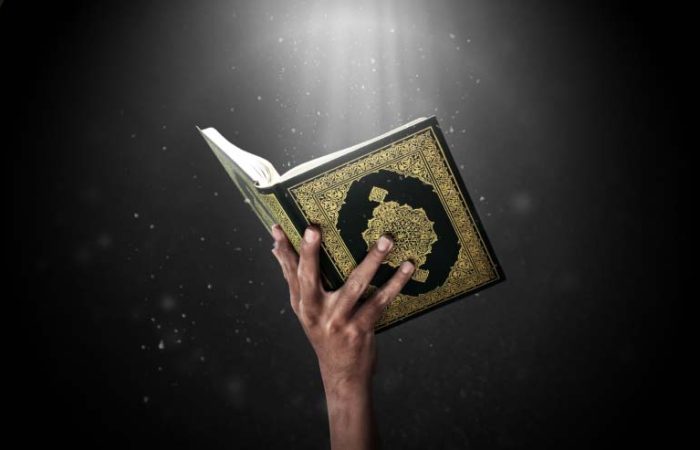
قرآن پاک مسلمانوں کے لیے انتہائی اہمیت کا حامل ہے کیونکہ اسے خدا کا کلام اور اسلامی عقیدے کی بنیاد سمجھا جاتا ہے۔ قرآن مسلمانوں کے لیے رہنمائی کا بنیادی ذریعہ ہے اور اسے انسانیت کے لیے خدا کے پیغام کا آخری اور مکمل وحی سمجھا جاتا ہے۔ مسلمانوں کا ماننا ہے کہ قرآن میں خدا کی وہ تعلیمات موجود ہیں جو ہر زمانے اور جگہوں سے متعلق ہیں، اور یہ کہ ایک نیک اور مکمل زندگی گزارنے کے لیے درکار رہنمائی فراہم کرتا ہے۔
قرآن کو زندگی کے تمام پہلوؤں بشمول عقائد، عبادات، اخلاقیات اور سماجی مسائل کے لیے رہنمائی کا ذریعہ سمجھا جاتا ہے۔ یہ خدا کی وحدانیت اور خدا کے نبیوں بشمول آدم، ابراہیم، موسیٰ اور عیسیٰ پر ایمان کی تعلیم دیتا ہے۔ یہ اسلامی عبادت کے اصول بھی بیان کرتا ہے، بشمول اسلام کے پانچ ستون: ایمان کا اعلان، نماز، روزہ، صدقہ دینا، اور مکہ کی زیارت کرنا۔ مزید برآں، یہ ایمانداری، ہمدردی، اور معافی جیسے اخلاقی اصول سکھاتا ہے اور مسلمانوں کو دوسروں کے ساتھ رحم، شفقت اور انصاف کے ساتھ برتاؤ کرنے کی ترغیب دیتا ہے۔
باقاعدگی سے قرآن پڑھنا مسلمانوں کے لیے ایک اہم عمل سمجھا جاتا ہے۔ بہت سے مسلمان روزانہ کی نمازوں میں قرآن کی تلاوت کرتے ہیں، اسے حفظ کرتے ہیں، اور حتیٰ کہ اپنی زندگی میں بھی اس کی تلاوت کرتے ہیں۔ یہ خیال کیا جاتا ہے کہ قرآن کو پڑھنے سے امن، سمجھ اور رہنمائی حاصل ہوتی ہے جو اسے تلاش کرتے ہیں۔ بہت سے مسلمان بھی قرآن کو بہت سے اسلامی فنون، جیسے خطاطی، شاعری اور موسیقی کے لیے الہام کا ذریعہ سمجھتے ہیں۔
قرآن خود غوروفکر اور ذاتی ترقی کی اہمیت بھی سکھاتا ہے۔ یہ افراد کو اپنے اعمال پر غور کرنے اور خود کو بہتر بنانے کی کوشش کرنے کی ترغیب دیتا ہے۔ یہ تعلیم، علم اور حکمت کی اہمیت بھی سکھاتا ہے۔
آخر میں، قرآن پاک مسلمانوں کے لیے انتہائی اہمیت کا حامل ہے کیونکہ اسے اسلامی عقیدے کی بنیاد، مسلمانوں کے لیے رہنمائی کا بنیادی ذریعہ اور ایک ادبی شاہکار سمجھا جاتا ہے۔ اس میں عقائد، عبادت، اخلاقیات، اور سماجی مسائل سمیت وسیع موضوعات پر تعلیمات شامل ہیں، اور علم، حکمت، ذاتی ترقی، اور امن و ہم آہنگی کے حصول کی حوصلہ افزائی کرتی ہے۔
جدید دور میں قرآن کی مطابقت زندگی کے مختلف پہلوؤں میں دیکھی جا سکتی ہے۔ اخلاقیات، اخلاقیات اور سماجی مسائل پر اس کی تعلیمات آج کے معاشرے میں اب بھی انتہائی متعلقہ ہیں۔
;اخلاقیات اور اخلاقیات
قرآن ایمانداری، ہمدردی اور معافی جیسے اخلاقی اصول سکھاتا ہے، جو آج کے معاشرے میں متعلقہ ہیں جہاں بہت سے لوگ دیانت اور اخلاقی اقدار کے مسائل سے نبرد آزما ہیں۔ دوسروں کے ساتھ مہربانی اور ہمدردی سے پیش آنے کے بارے میں قرآن کی تعلیمات کا اطلاق بہت سے حالات میں کیا جا سکتا ہے، بشمول کام کی جگہ پر تعلقات، سیاسی گفتگو، اور مختلف پس منظر کے لوگوں کے ساتھ تعامل۔
:سماجی مسائل
قرآن شادی، خاندان، اور برادری جیسے مسائل کو حل کرتا ہے، جو جدید دور میں اب بھی متعلقہ ہیں۔ اپنے والدین کے ساتھ احترام اور نگہداشت کے ساتھ سلوک کرنے کی اہمیت، اور اپنی برادری اور کم خوش نصیبوں کی دیکھ بھال کی اہمیت پر اس کی تعلیمات کا اطلاق موجودہ سماجی مسائل جیسے بزرگوں کی دیکھ بھال اور غربت پر کیا جا سکتا ہے۔
:علم اور حکمت
قرآن علم اور حکمت کے حصول کی حوصلہ افزائی کرتا ہے، جو آج کے معاشرے میں اہم اقدار ہیں، خاص طور پر ٹیکنالوجی اور سائنسی ترقی کی تیز رفتاری کی روشنی میں۔
:ذاتی ترقی
قرآن افراد کو ان کے اعمال پر غور کرنے اور ذاتی ترقی اور خود کی بہتری کے لیے کوشش کرنے کی ترغیب دیتا ہے، جو کہ انفرادی فلاح اور مجموعی طور پر معاشرے کے لیے بہت ضروری ہے۔
:امن اور ہم آہنگی
امن اور ہم آہنگی پر قرآن کی تعلیمات آج کی دنیا میں پہلے سے کہیں زیادہ اہم ہیں جہاں بڑے اور چھوٹے دونوں طرح کے تنازعات موجود ہیں۔ قرآن سکھاتا ہے کہ امن اور ہم آہنگی خدا کی ہدایت پر عمل کرنے، دوسروں کے ساتھ حسن سلوک اور احترام سے پیش آنے اور معاشرے کی بہتری کے لیے کام کرنے سے حاصل کی جاسکتی ہے۔
مزید یہ کہ قرآن جدید زندگی کے بہت سے شعبوں جیسے نفسیات، سماجیات اور سیاسیات میں بھی استعمال ہوا ہے۔ کچھ علماء اسے انسانی حقوق، سماجی انصاف اور موجودہ تنازعات جیسے مختلف مسائل کو سمجھنے کے لیے بھی استعمال کرتے ہیں۔ قرآن کو بہت سے اسلامی فنون، جیسے خطاطی، شاعری اور موسیقی کے لیے الہام کے ذریعہ کے طور پر بھی استعمال کیا جاتا ہے۔
Quran Majeed A Way of Life | قرآن مجید زندگی کا ایک طریقہ
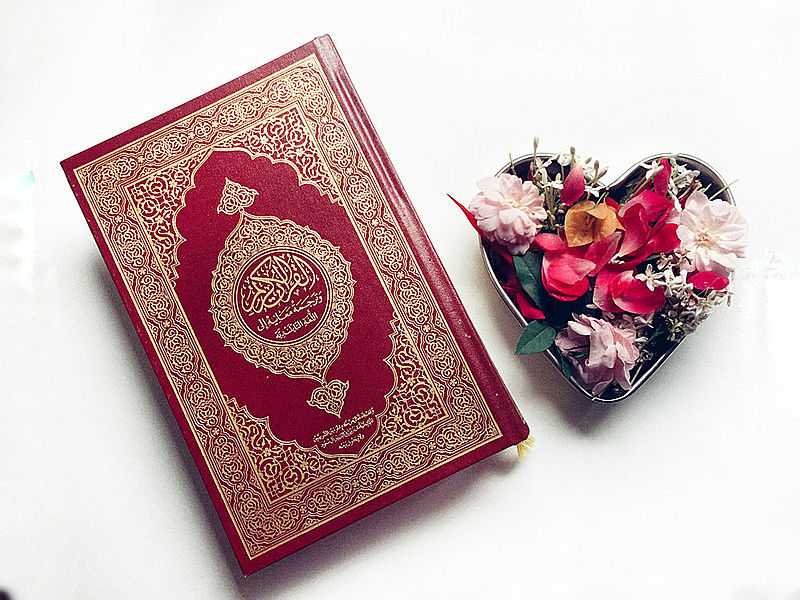
آخر میں، جدید دور میں قرآن کی مطابقت اس کی اخلاقیات، اخلاقیات اور سماجی مسائل، علم، حکمت، ذاتی ترقی، اور امن اور ہم آہنگی کی حوصلہ افزائی میں دیکھی جا سکتی ہے۔ یہ مسلمانوں اور غیر مسلموں کے لیے یکساں رہنمائی اور تحریک کا ایک لازوال ذریعہ ہے۔ آخر میں، قرآن ایک مقدس متن ہے جو اسلامی عقیدے میں مرکزی مقام رکھتا ہے۔ یہ خدا کا کلام سمجھا جاتا ہے جیسا کہ نبی محمد پر نازل ہوا ہے اور افراد اور معاشرے کے لیے رہنمائی، ہدایت اور تعلیمات فراہم کرتا ہے۔ قرآن میں بہت سارے موضوعات شامل ہیں جن میں اخلاقیات، اخلاقیات اور روحانیت شامل ہیں، اور اس کے اہم پیغامات میں خدا کی وحدانیت، ایمان کی اہمیت، سماجی انصاف اور خاندان اور برادری کی اہمیت شامل ہیں۔ قرآن کو اسلامی عقیدے کی بنیاد سمجھا جاتا ہے اور مسلمانوں کے لیے رہنمائی اور رہنمائی کا ایک اہم ذریعہ ہے۔ مزید برآں، قرآن کی تعلیمات اور پیغام جدید دور میں بھی بہت زیادہ متعلقہ ہیں۔ اسلامی عقیدے کی گہرائی سے فہم حاصل کرنے اور زیادہ بامعنی اور بھرپور زندگی گزارنے کے لیے لوگوں کے لیے قرآن کا مطالعہ اور سمجھنا ضروری ہے
Essay on Quran Majeed in English Written Form
Introduction to Quran Majeed:
The Quran Majeed is the sacred text of the Islamic faith. It is believed to be the word of God as revealed to the Prophet Muhammad over a period of 23 years. The Quran is written in Arabic and contains 114 chapters, or surahs, which are divided into verses, or ayahs. Muslims believe that the Quran is the literal word of God and that it is the final and complete revelation of God’s message to humanity.
The Quran is considered the foundation of the Islamic faith and is the primary source of guidance for Muslims. It covers a wide range of topics including beliefs, worship, morality, and social issues. The Quran teaches the oneness of God and the belief in the prophets of God, including Adam, Abraham, Moses, and Jesus. It also teaches the importance of treating others with kindness, compassion, and justice, and encourages the pursuit of knowledge, wisdom, and personal growth.
The Quran is also considered to be a literary masterpiece and is admired for its eloquence and beauty. Muslims believe that the Quran has the power to change lives and that reading it regularly can bring peace, understanding, and guidance to those who seek it. Many Muslims recite the Quran in daily prayers, memorize it, and even recite it during their lifetime. The Quran is also considered as the source of inspiration for many Islamic arts, such as calligraphy, poetry and music.
In conclusion, The Quran Majeed is the foundation of the Islamic faith, the primary source of guidance for Muslims and a literary masterpiece. Muslims believe that the Quran is the literal word of God and that it is the final and complete revelation of God’s message to humanity, and it is also considered a source of inspiration for many Islamic arts.
Teachings of Quran MAJEED:

The Quran contains teachings on a wide range of topics, including:
Beliefs: The Quran teaches the oneness of God and the belief in the prophets of God, including Adam, Abraham, Moses, and Jesus. It also teaches the importance of following the guidance of the prophets and submitting to the will of God.
Worship: The Quran lays out the principles of Islamic worship, including the Five Pillars of Islam: the declaration of faith, prayer, fasting, giving to charity, and making the pilgrimage to Mecca.
Morality: The Quran teaches moral principles such as honesty, compassion, and forgiveness. It encourages Muslims to treat others with kindness, compassion, and justice and to avoid harmful actions such as greed, anger, and envy.
Social issues: The Quran addresses issues such as marriage, family, and community. It teaches the importance of treating one’s parents with respect and care, and encourages individuals to care for their community and to be responsible for the well-being of the less fortunate.
Knowledge and wisdom: The Quran encourages the pursuit of knowledge and wisdom, and teaches that true understanding comes from seeking guidance from God.
Personal growth: The Quran encourages individuals to reflect on their actions and to strive for personal growth and self-improvement.
Peace and harmony: The Quran teaches that peace and harmony can be achieved through following the guidance of God, treating others with kindness and respect, and working towards the betterment of society.
Overall, The Quran is the foundation of the Islamic faith, the primary source of guidance for Muslims and a literary masterpiece. It covers a wide range of topics including beliefs, worship, morality, and social issues, as well as encouraging the pursuit of knowledge, wisdom, personal growth, peace and harmony.
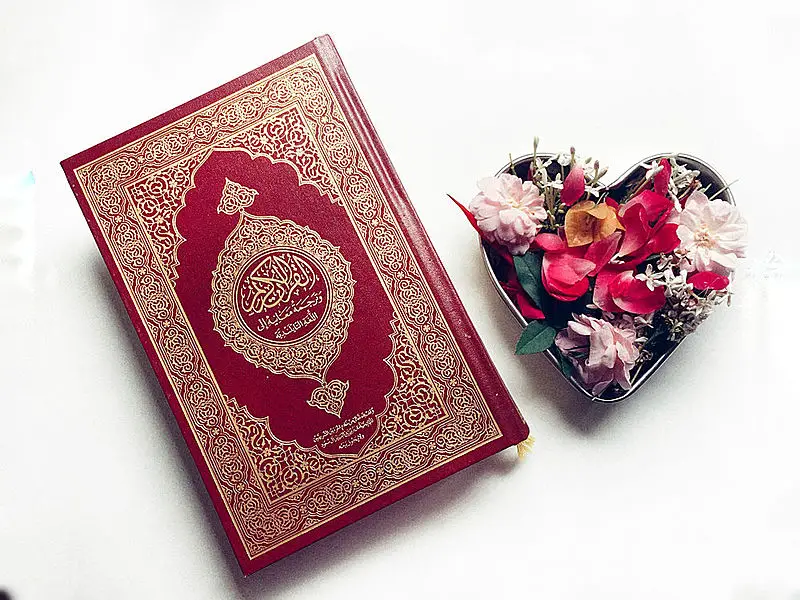
IMPORTANCE OF QURAN MAJEED:
The Quran Majeed is of paramount importance for Muslims as it is considered to be the word of God and the foundation of the Islamic faith. The Quran is the primary source of guidance for Muslims and is considered to be the final and complete revelation of God’s message to humanity. Muslims believe that the Quran contains the teachings of God that are relevant to all times and places, and that it provides the guidance needed to lead a virtuous and fulfilling life.
The Quran is considered to be the source of guidance for all aspects of life, including beliefs, worship, morality, and social issues. It teaches the oneness of God and the belief in the prophets of God, including Adam, Abraham, Moses, and Jesus. It also lays out the principles of Islamic worship, including the Five Pillars of Islam: the declaration of faith, prayer, fasting, giving to charity, and making the pilgrimage to Mecca. Additionally, it teaches moral principles such as honesty, compassion, and forgiveness and encourages Muslims to treat others with kindness, compassion, and justice.
Reading the Quran regularly is considered to be an important practice for Muslims. Many Muslims recite the Quran in daily prayers, memorize it, and even recite it during their lifetime. It is believed that reading the Quran brings peace, understanding, and guidance to those who seek it. Many Muslims also consider the Quran to be a source of inspiration for many Islamic arts, such as calligraphy, poetry, and music.
The Quran also teaches the importance of self-reflection and personal growth. It encourages individuals to reflect on their actions and to strive for self-improvement. It also teaches the importance of education, knowledge and wisdom.
In conclusion, The Quran Majeed is of paramount importance for Muslims as it is considered to be the foundation of the Islamic faith, the primary source of guidance for Muslims, and a literary masterpiece. It contains teachings on a wide range of topics including beliefs, worship, morality, and social issues, and encourages the pursuit of knowledge, wisdom, personal growth, and peace and harmony.
THE QURAN MAJEED RELEVANCE IN MODERN TIMES
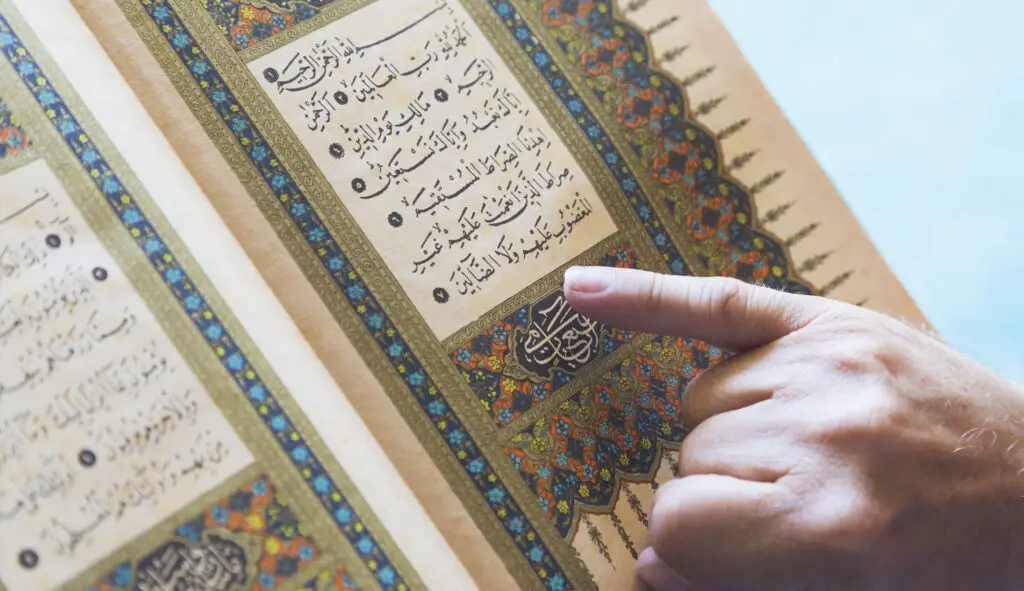
The Quran’s relevance in modern times can be seen in various aspects of life. Its teachings on morality, ethics, and social issues are still highly relevant in today’s society.
Morality and ethics: The Quran teaches moral principles such as honesty, compassion, and forgiveness, which are relevant in today’s society where many people are struggling with issues of integrity and moral values. The Quran’s teachings on treating others with kindness and compassion can be applied in many situations, including workplace relationships, political discourse, and interactions with people from different backgrounds.
Social issues: The Quran addresses issues such as marriage, family, and community, which are still relevant in modern times. Its teachings on the importance of treating one’s parents with respect and care, and on caring for one’s community and the less fortunate, can be applied to current social issues such as elder care and poverty.
Knowledge and wisdom: The Quran encourages the pursuit of knowledge and wisdom, which are important values in today’s society, particularly in light of the rapid pace of technological and scientific advancements.
Personal growth: The Quran encourages individuals to reflect on their actions and to strive for personal growth and self-improvement, which is crucial for individual well-being and society as a whole.
Peace and harmony: The Quran’s teachings on peace and harmony are more important than ever in today’s world where there are many conflicts, both large and small. The Quran teaches that peace and harmony can be achieved through following the guidance of God, treating others with kindness and respect, and working towards the betterment of society.
Moreover, The Quran has also been used in many fields of modern life such as psychology, sociology, and political science. Some scholars also use it to understand various issues such as human rights, social justice and current conflicts. The Quran is also used as a source of inspiration for many Islamic arts, such as calligraphy, poetry, and music.
CONCLUSION
In conclusion, The Quran’s relevance in modern times can be seen in its teachings on morality, ethics, and social issues, its encouragement of knowledge, wisdom, personal growth, and peace and harmony. It’s a timeless source of guidance and inspiration for Muslims and non-Muslims alike.

In conclusion, the Quran is a sacred text that holds a central place in the Islamic faith. It is considered to be the word of God as revealed to the prophet Muhammad and provides guidance, direction, and teachings for individuals and society. The Quran covers a wide range of topics, including morality, ethics, and spirituality, and its main messages include the Oneness of God, the importance of faith, social justice, and the importance of family and community. The Quran is considered to be the foundation of the Islamic faith and is an important source of guidance and direction for Muslims. Additionally, the Quran’s teachings and message are still highly relevant in modern times. It is important for individuals to study and understand the Quran in order to gain a deeper understanding of the Islamic faith and to live a more meaningful and fulfilling life.
BEST URDU SPEECHES OF ALL TIMES
Urdu Speech on “Markaz-e-Yaqeen Pakistan”
Urdu Speech on “Shaheed ki jo maut hay wo qaum ki hayat hay”
Urdu Speech on “Khamoshi Kab Tak”
Urdu Speech on “INQILAAB AYEGA”







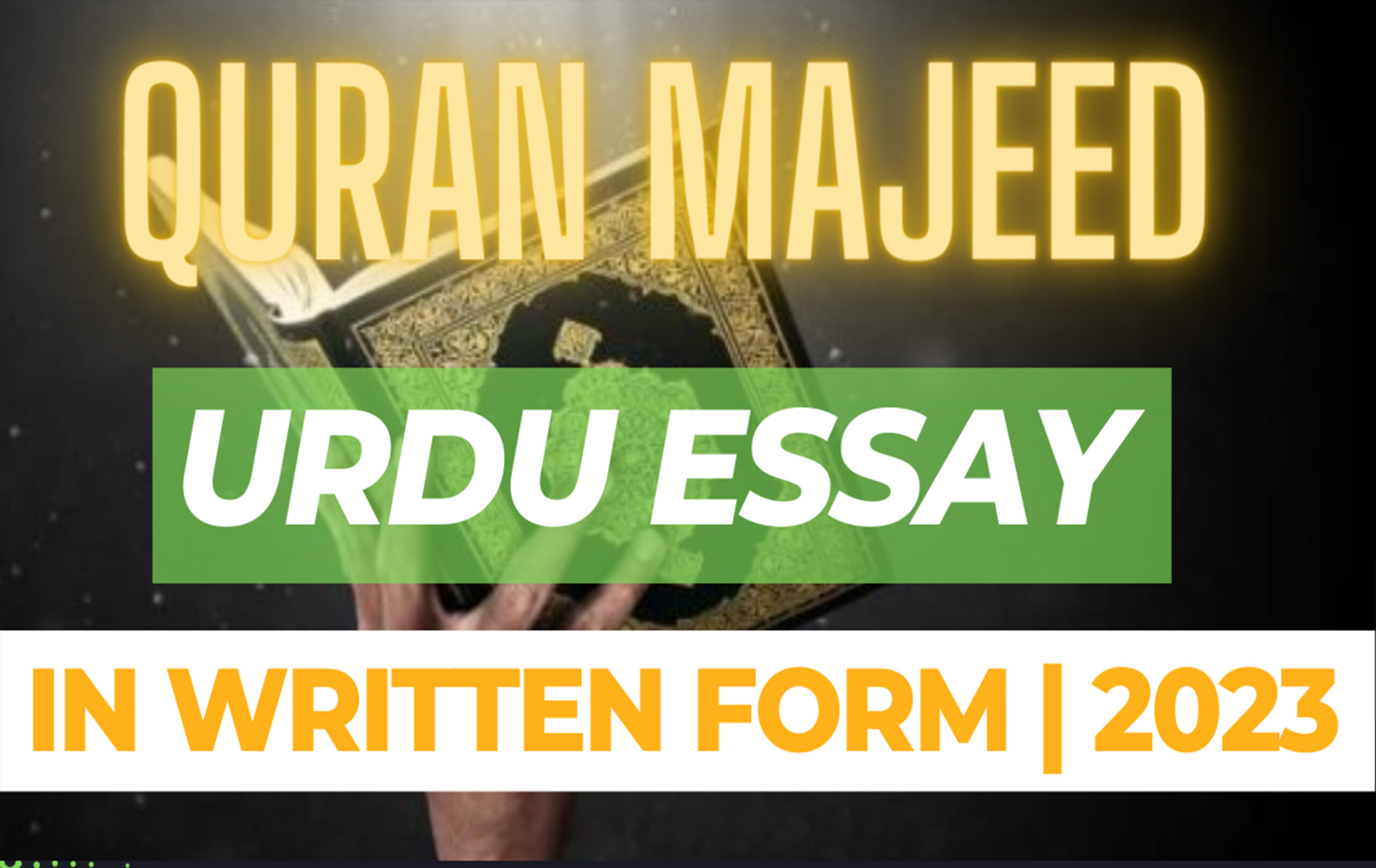
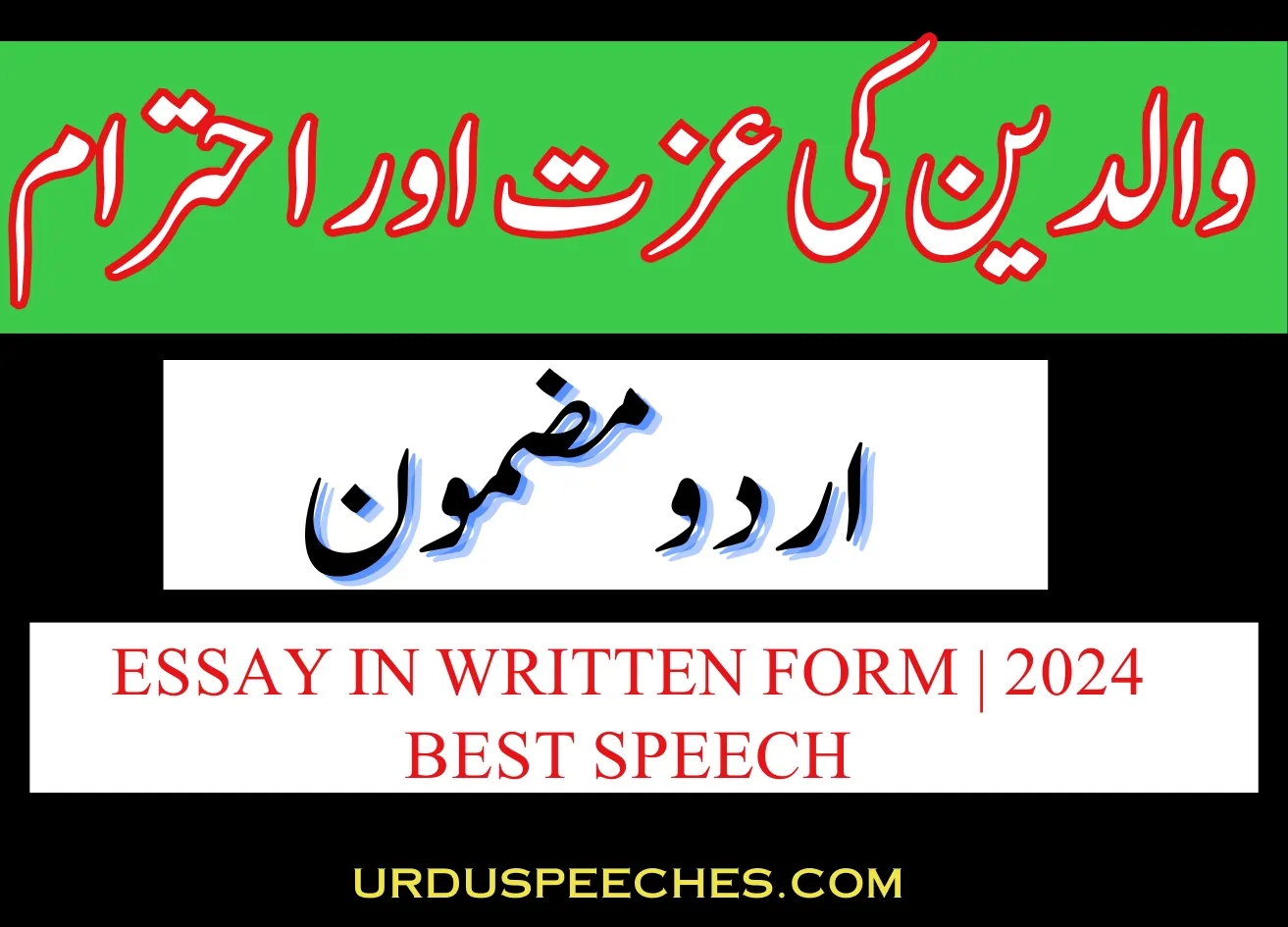
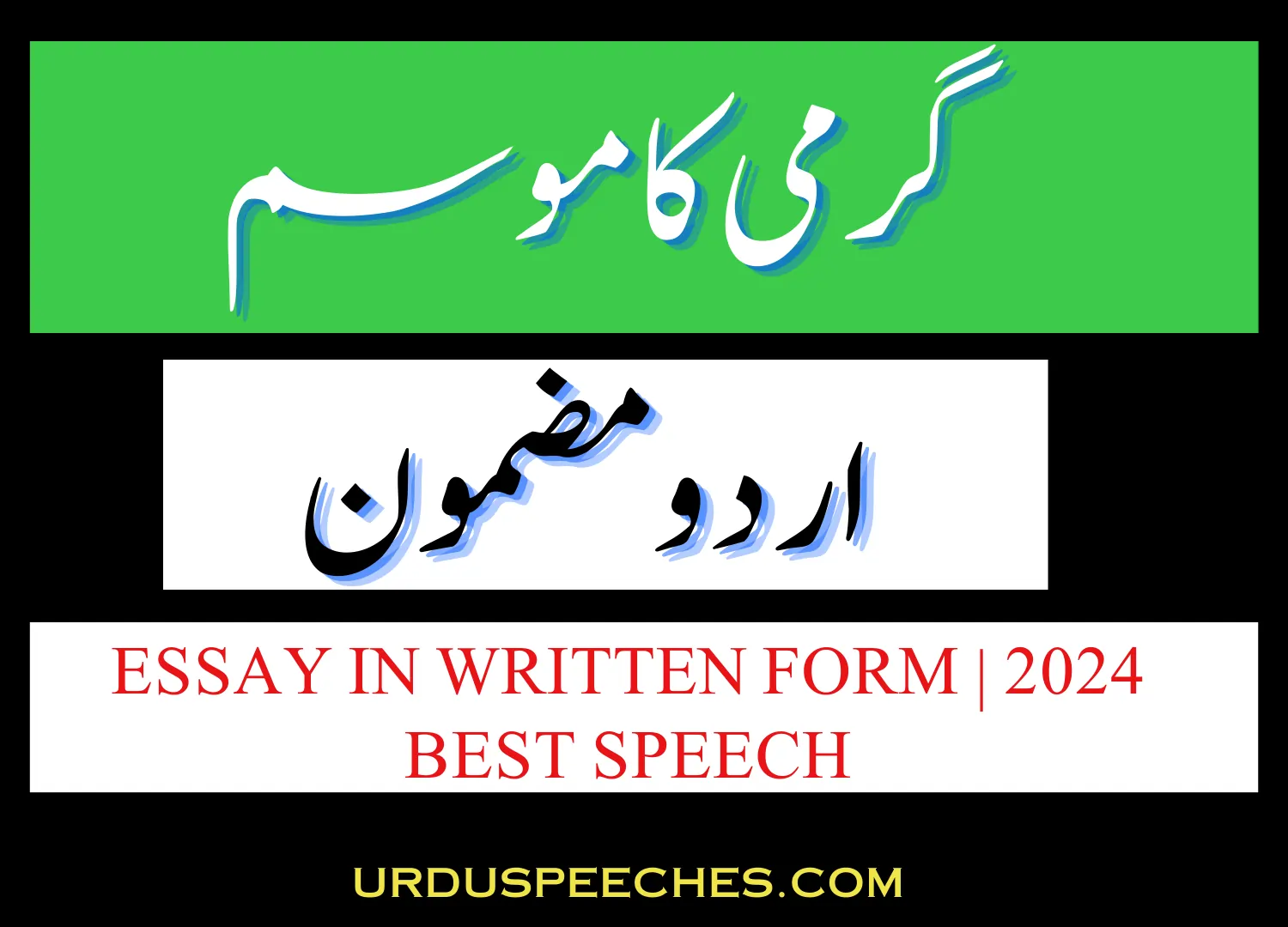
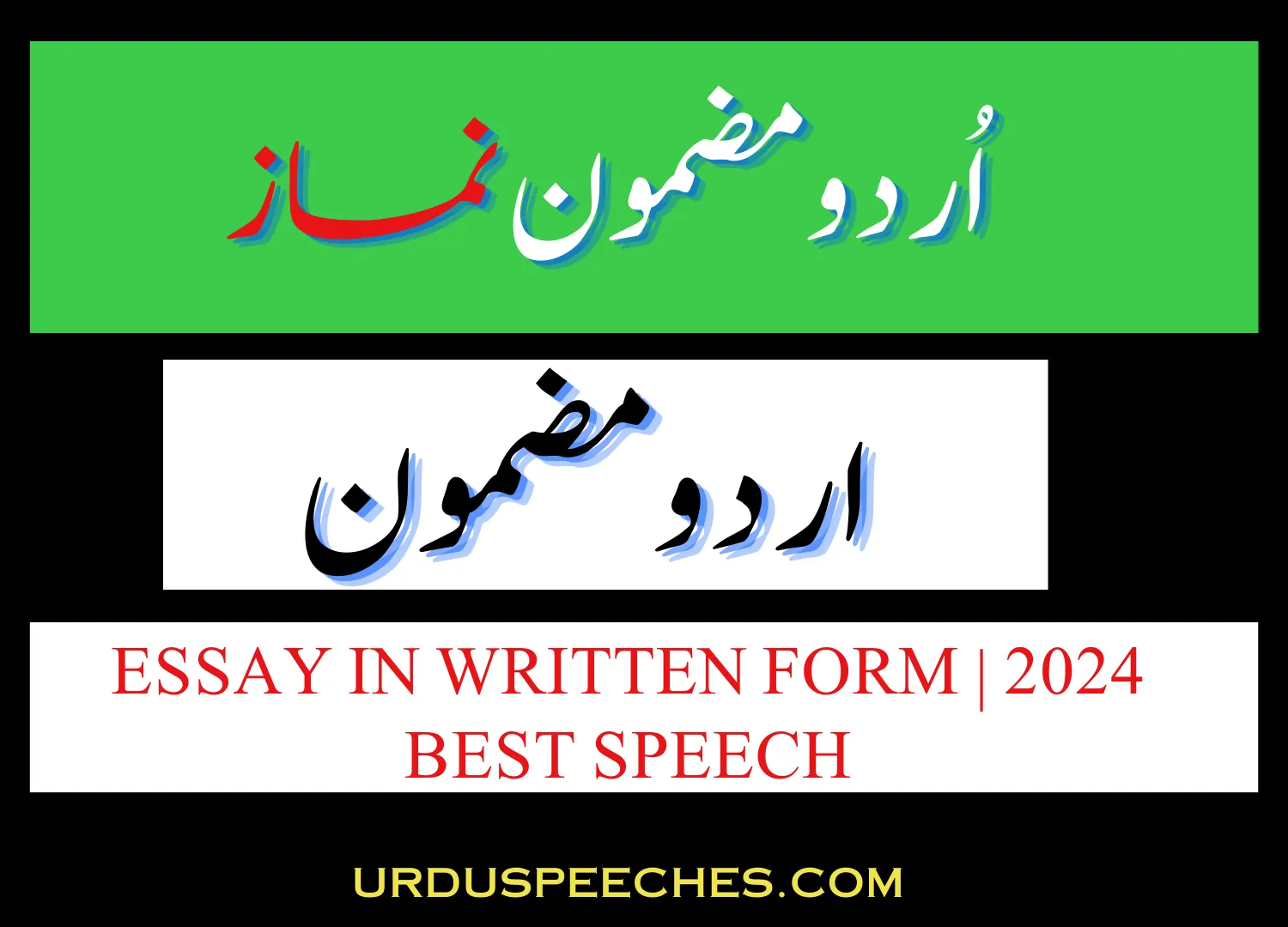
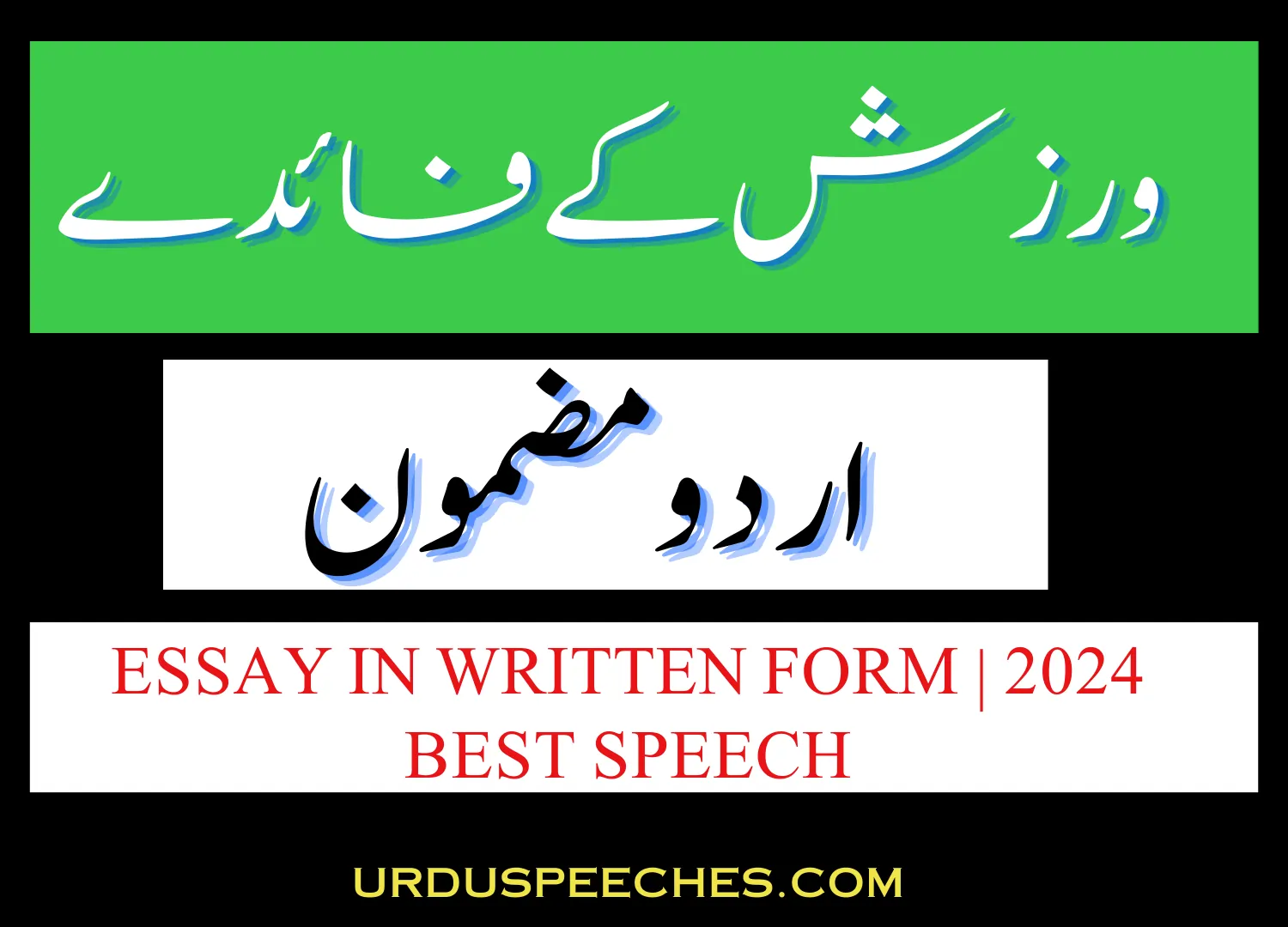
One thought on “Essay on Quran Majeed in Urdu Written Form”